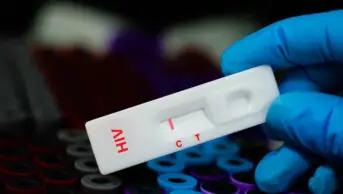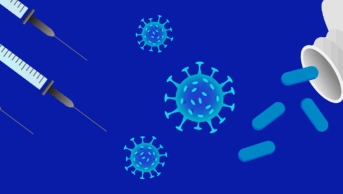
Shutterstock.com
HIV pre-exposure prophylaxis (PrEP) is “highly effective” at preventing the transmission of HIV, results from a real-world study have revealed.
However, researchers who carried out the ‘PrEP Impact’ trial, led by the UK Health Security Agency and Chelsea and Westminster Hospital NHS Foundation Trust, have warned that a “substantial expansion of PrEP access” was needed to maximise its effectiveness.
Results of the trial, published in The Lancet HIV on 30 November 2023, found that PrEP reduced the chances of getting HIV by almost 87% and considerably reduced HIV acquisition in real-world settings across several years of use.
The trial was conducted across 157 sexual health services in England between October 2017 and July 2020. Of 21,356 participants in the trial, 20,403 were men who have sex with men (MSM).
Among MSM, HIV incidence was 0.13 (95% CI 0.08–0.19) per 100 person-years in trial participants and 0.95 (95% CI 0.88–1.03) per 100 person-years in non-trial attendees, which was a proportionate reduction of 86.8% (95% CI 80·2–91·6).
“The many HIV seroconversions in MSM non-trial attendees illustrated the large unmet need for PrEP, both in those categorised at risk of HIV acquisition and those not,” the authors said.
“Within HIV prevention activities for MSM, a substantial expansion of PrEP access, beyond the level provided during the trial period, will be required to maximise the effectiveness of a national PrEP programme.”
Commenting on the study, Kevin Fenton, the government’s chief advisor on HIV and chair of the HIV Action Plan Implementation Steering Group, said: “Our national HIV action plan is clear on the key role of PrEP in preventing HIV transmission and there is ongoing work to develop a roadmap to guide our efforts to improve equitable access, uptake and use of PrEP to meet the needs of key populations at significant risk of HIV.”
In a joint statement, published following the study’s results, Amanda Healy, policy lead for health protection for the Association of Directors of Public Health, James Woolgar, chair of the English HIV and Sexual Health Commissioners’ Group, and David Fothergill, chair of the Local Government Association’s Community Wellbeing Board, welcomed the trial’s confirmation that PrEP has the potential to help reduce HIV infection.
“Unfortunately, we know that some communities and individuals, who are eligible, are not accessing this important treatment,” they said.
“In a report commissioned by the English HIV and Sexual Health Commissioners’ Group, a number of recommendations were made to help authentically engage with communities to reduce these barriers across different geographies and regions and help us ensure that we improve PrEP equity.”
PrEP has been routinely available through specialist sexual health services since 2020. Local authorities in England are responsible for commissioning access to most sexual and reproductive health services, including HIV prevention, testing and access to PrEP.
According to documents seen by The Pharmaceutical Journal earlier in 2023, the PrEP Access and Equity Task and Finish group — established by the Department of Health and Social Care in September 2022 to identify ways of improving access to PrEP as part of the HIV action plan — made several recommendations to improve access to PrEP and reduce HIV transmission in England.
One recommendation was that “national health bodies, in partnership with local commissioners, should commission a series of pilots providing PrEP in a variety of settings outside specialist sexual health clinics, including online, pharmacies, GPs, a community setting, a contraceptive clinic and a non-specialist sexual health setting”.
In September 2023, then health minister Neil O’Brien told a Westminster Hall debate that the government’s HIV action plan implementation steering group was “working to develop a PrEP roadmap” based on the group’s recommendations to improve access to PrEP, which would be published before the end of 2023 and would include “all the knotty issues in enabling community pharmacy to provide PrEP”.
Debbie Laycock, head of policy at Terrence Higgins Trust, said: “PrEP is a game changer in HIV prevention – but we think that there are certain communities and individuals at the moment who could benefit from PrEP but aren’t accessing it.
“The roll out of PrEP in the England has contributed to a steep decline in new HIV diagnoses among gay, bisexual and other men who have sex with men, particularly those in London, since 2014 – but many women just don’t know PrEP exists. PrEP has the potential to do so much more for people affected by HIV.
“The HIV prevention pill is currently only available via sexual health clinics and our recent research found that the average waiting time for a PrEP appointment at a clinic was a whopping 12 weeks. That’s why Terrence Higgins Trust are calling for it to be available in pharmacies, GPs and online to raise awareness but also widen access to it and reach people who are less likely to attend a sexual health clinic.”


